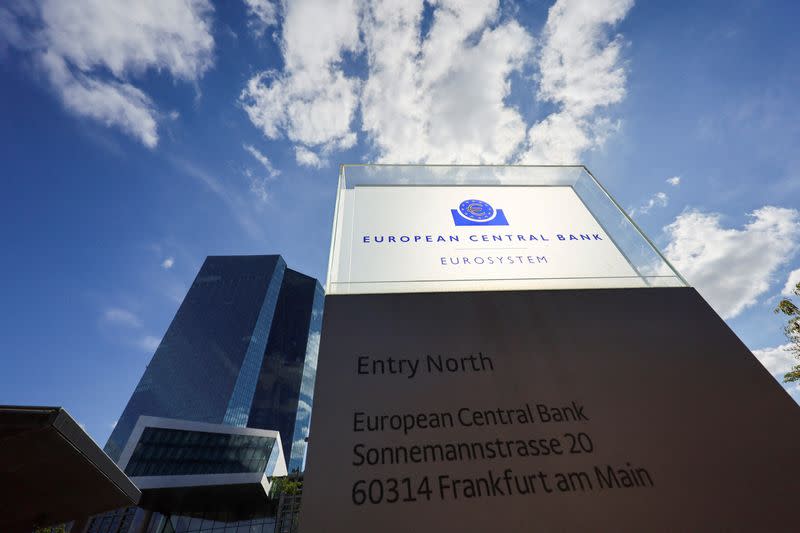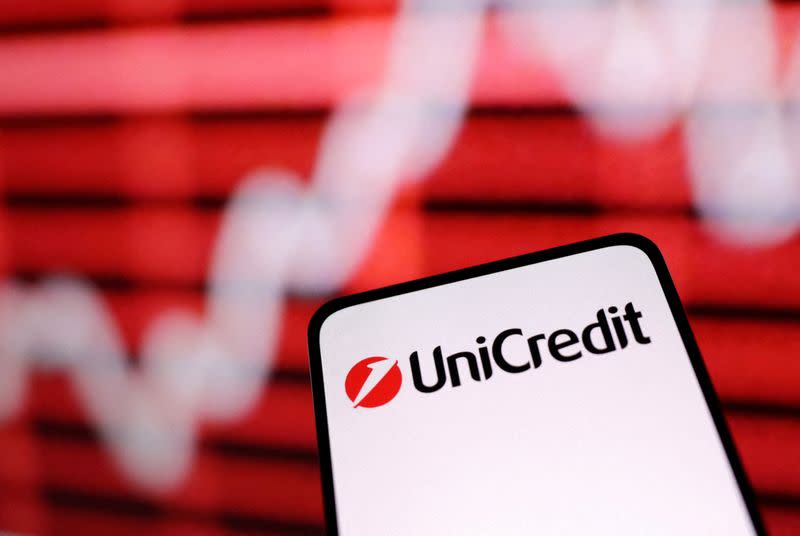Exclusive-ECB flags concern over UniCredit management turnover risk under CEO Orcel, sources say
By Valentina Za
MILAN (Reuters) - The European Central Bank has raised concerns with UniCredit about a high turnover of top managers, after a string of changes at Italy's No.2 bank under Chief Executive Andrea Orcel, two people with knowledge of the matter said.
UniCredit has seen a series of top departures since Orcel joined in April 2021. The former UBS investment banker quickly moved to overhaul the bank's leadership structure, picking new top executives as he axed a dual head set-up.
While management changes are not unusual when a new CEO takes over, departures at UniCredit have continued and the turnover is higher than at other Italian lenders such as Intesa Sanpaolo, whose top team has been stable for around a decade.
European banking supervisors flagged the issue to UniCredit in recent months as part of the regular feedback to banks in their assessment of risks, said one of the sources, speaking on condition of anonymity because the matter is confidential.
Reuters was not able to establish the specific concerns. The ECB and UniCredit declined to comment.
Banking supervisors, which are tasked with preserving financial stability, worry generally about high managerial churn because frequent handovers can increase operational risks.
Personnel moves can also make it harder to keep smooth succession plans in place, including maintaining a pipeline of younger executives ready to assume more responsibilities.
Frequent changes at the top risk delaying the implementation of strategies that the ECB monitors closely, such as shifting to digital banking. Supervisors are also focused on governance and how banks manage unexpected risks.
They conduct yearly reviews of the way banks are run, examining key people and functions. That is part of a wider assessment of banks' ability to manage risks, which leads the ECB to set bank-specific capital requirements annually.
The ECB said in December, when publishing the results of its annual evaluation processes, that banks needed to pay particular attention to internal governance given three out of four had deficiencies in that area.
CHANGES
UniCredit's larger rival Intesa Sanpaolo's top-tier team has been in place almost since CEO Carlo Messina took over in 2013. Intesa has made some changes recently, including promoting its deputy CFO to chief financial officer, as Messina prepares to seek a new mandate.
UniCredit recently named an interim head of legal after the exit of Gianpaolo Alessandro, who had also been secretary to the board for a decade, sources told Reuters last month.
This month, the bank appointed academic Elena Carletti, who has long led UniCredit's risk committee, as the board's deputy vice chair after Lamberto Andreotti, in the post since 2019, decided not to seek another board mandate.
Some of those who have left were hired or promoted by Orcel.
In July 2023, UniCredit named a new chief digital officer after the exit of Jingle Pang, a former Ping An executive who became technology chief under Orcel.
UniCredit is on its third chief operating officer since Orcel joined, after Bart Schlatmann stepped down last year. Schlatmann took over from UniCredit veteran Ranieri de Marchis, who became COO in April 2021 before leaving in May 2022.
Other departures include Niccolo Ubertalli, who left in July 2022, a year after he was given responsibility for UniCredit's domestic business. An internal memo the same month showed Stefano Vecchi, head of UniCredit's Italian private banking and wealth management unit, was leaving after 10 months in the role.
(Reporting by Valentina Za; Editing by Tommy Reggiori Wilkes and Alexander Smith)

 Yahoo Finance
Yahoo Finance 


